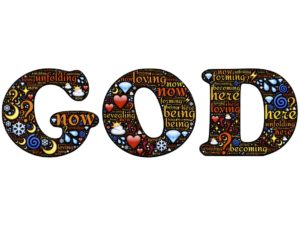After searching deeply into the nature of things, many great thinkers have come up with answers to the question, “Who is God?” Here are five of these answers: God is the unmoved mover; God is the uncaused cause; God is the necessary being whose necessity is not caused by any other being; God is the fullness of all perfections, and God is the intelligent being who directs everything in this world toward a purpose.
This article provides a summary of how human reason has gained these insights into the nature of God.
God is the unmoved mover
One of the most common observable phenomena in the things of nature is that things move. A thing begins to move when something already in motion causes it to move. But something already in motion is a moved mover whose motion had to have originated in something else already in motion, and so on.
Whatever moves cannot be the cause of its own motion because a moving thing is not yet what it is becoming. A material thing, for example, cannot simultaneously possess two locations, for it is not possible that the same thing should be at once in actuality and in potentiality in the same respect. No one expects the mercury level in a thermometer to go up by itself. And a rock begins to roll downhill only when another rock already in motion strikes it. To be the cause of its own motion, a moving thing would have to have already what it does not yet have. Thus, all that is in motion receives its motion from another.
The metaphysical implication here is that if one were to postulate a chain of infinite intermediate moved movers, nothing would ever move, and there would be no observable motion in the world, which is contrary to fact.
Therefore, at the origin of motion, there has to be a first-mover who moves and is not moved. God has been identified as the ultimate origin of all motion. As such, God is not a moved mover. God is the unmoved mover.
God is the uncaused cause
All effects proceed from causes, and quite often causal processes involve an orderly sequence of efficient causes. Many effects are connected to several agents in action one of which is dependent on a prior agent. Sound, for example, is one of the effects generated by the waves on the seashore.
No effect, however, can produce itself by way of efficient causality. It is not sufficient for an effect to be its own efficient cause. The effect would have to exist in order to cause itself, and yet would not exist, insofar as it was being caused, which is impossible.
But an effect can and often do, become the efficient cause of other effects. However, no matter how many intermediate effects are needed to bring about a particular effect under consideration, any effect acting as an efficient cause must itself be caused.
And it is impossible that this chain of caused causes goes on to infinity, for without some first cause there would be no middle cause and no last cause, this latter being the cause closest to the effect under consideration.
Thus, at the origin of efficient causation, there has to be a first cause which cannot be the effect of any other higher cause. God has been identified as the ultimate origin of all efficient causality. God does not depend on a prior cause to exercise his causality. God is the uncaused cause.
God is the necessary being whose necessity is not caused by any other being
The material things of nature are contingent beings in that, once in existence, at some point, they actually cease to be. Contingent beings, such as flowers and other plants, have a limited duration. They come into being by way of generation and they cease to be by way of corruption. The existence of a material thing is preceded and followed by its non-existence.
 Of their own, all contingent beings at some point must have no existence. If there were only contingent beings, all beings could not exist, and there would have been at one point no beings. How could one then explain the fact that contingent beings are here now?
Of their own, all contingent beings at some point must have no existence. If there were only contingent beings, all beings could not exist, and there would have been at one point no beings. How could one then explain the fact that contingent beings are here now?
Since something cannot come from anything, contingent beings must be caused by necessary beings. Necessary beings, once in existence, cannot cease to be. Necessary beings are needed to account for the existence of contingent beings.
Now, no necessary being can be the efficient cause of its own necessity. Necessary beings must receive their necessity from another being. But this cannot proceed to infinity. There has to be a first being whose necessity is not caused by any other being and who is also ultimately the cause of all contingent beings. And this is God.
God is the necessary being who has existed from all eternity without beginning and without end. God is the cause of all other beings, both contingent beings and necessary beings. God is the necessary being whose necessity is not caused by any other being.
God is the fullness of all perfections
There are various perfections observable in the things of nature, such as the good, the true, the noble and others of this kind. For example, some horses are nobler than others. These are the so-called pure or transcendental perfections. These perfections are predicated of things in a comparative manner because it is observed that some things are more good, or nobler or have a higher level of being than another.
 Comparatives, however, are said only with respect to a superlative. We would not be able to perceive a gradation of excellence unless there was some standard of excellence against which to compare. More or less are predicated of different things according to like these things, in their different ways, resemble or come closer to something which is the maximum.
Comparatives, however, are said only with respect to a superlative. We would not be able to perceive a gradation of excellence unless there was some standard of excellence against which to compare. More or less are predicated of different things according to like these things, in their different ways, resemble or come closer to something which is the maximum.
If things do not possess perfection fully, they possess it only by way of participation. Nothing created instantiates the fullness of perfection. But the limited occurrence of perfection cannot be explained unless there is also a pure and unlimited instance of it. A gradation in participation indicates that there must exist some superlative thing which instantiates the perfection in the highest possible degree.
For example, the diversity of goodness that one finds in a multiplicity of things – with increasing goodness the higher one ascends in seeking instances of goodness – indicates that the goodness of these things comes forth from the very principle of goodness, that is, from one supreme goodness.
At the level of efficient causality, the highest instantiation of any perfection is the cause of that perfection in all other things that participate in perfection. The highest in the group of beings who possess perfection is a being who possesses perfection fully, absolutely and essentially. In all other members of the group, perfection is only partially realized. And this highest being is called God.
God is unparticipated perfection. God is that being in whose perfections all other beings participate. God is the fullness of all perfections.
God is the intelligent being who directs everything in this world towards a purpose
It is observed that there are order and purpose in the universe. Every day one can see that non-intelligent, natural things aim at some end. The answer to the question of whether the purpose of the egg is to be a chicken or an egg sandwich is that the intrinsic (natural) end of the egg is to be a chicken. But nothing aims at an end unless it is directed toward that end by an intelligent being. Order and purpose do not come from anything but require the activity of some intelligence who arranges things.
 To make a combination of a great number of different things, forces and movements work together consistently to obtain complex and well-ordered effects, an intelligent being must be at work. The being who gives finality to all of nature is called God. God is the supreme intelligence who guides intelligent and non-intelligent beings toward their proper ends in an orderly way in the created world.
To make a combination of a great number of different things, forces and movements work together consistently to obtain complex and well-ordered effects, an intelligent being must be at work. The being who gives finality to all of nature is called God. God is the supreme intelligence who guides intelligent and non-intelligent beings toward their proper ends in an orderly way in the created world.
The answers presented above are answers supplied by metaphysical inquiry and the natural light of reason.
It is to be noted, however, that the question, “Who is God?” is also answered by revelation and the light of faith. Without a detailed explanation for the sake of brevity, here are five other formulations of answers to the question, “Who is God?” derived from the fonts of revelation: God is a merciful Father; God is a lovable Redeemer; God is the consoling Holy Spirit; God is the Word made flesh, and God is the faithful keeper of the promises.
Ultimately, not even a revelation can give full knowledge of who God is. But some knowledge of who God is, no matter how small, is the cause of great delight to those who sincerely search for Him.
https://www.youtube.com/watch?v=ihnOkBC99RY






